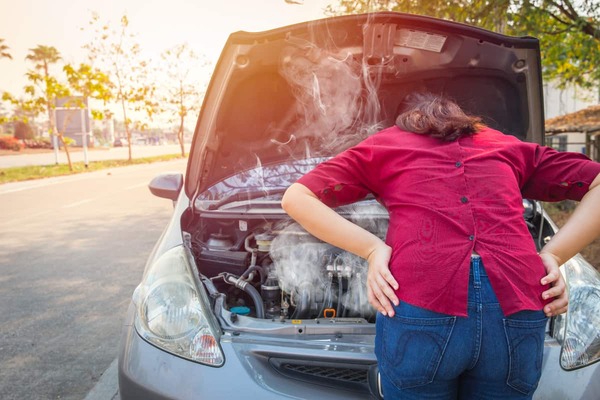Posted by - Robert Brown \
September 6, 2024 \
Filed in - Other
\
car overheating
\
77 views \
0 comments \
0 likes \
0 reviews
Your car is designed to handle high temperatures, but it can only go so far. When you find your car overheating when idle, it's a clear signal that something isn’t right under the hood. While the issue might seem small at first, ignoring it can lead to major damage. Let’s dive into why cars overheat when idle and how you can prevent it.
Steps to Take if Your Car Overheats While Idling
If you notice your car overheating when idle, here are some immediate steps you can take:
- Turn Off the Air Conditioning: Running the air conditioner puts extra strain on your engine. Switching it off will reduce the load and help cool down the engine.
- Turn On the Heater: This may sound counterintuitive, but turning on the heater can help remove excess heat from the engine by transferring it into the cabin.
- Shift to Neutral or Park: When the car is in idle, switching to neutral or park can ease the engine’s workload, helping it cool down more quickly.
- Turn Off the Engine: If the temperature continues to rise despite these measures, turn off the engine to prevent further damage. Let it sit for a while before attempting to open the hood or check under the bonnet.
- Check Coolant Levels: Once the engine has cooled, check the coolant levels in the reservoir. If the coolant is low, top it up with the correct type of antifreeze and water mixture, or have a professional look for leaks.
Common Reasons Your Car Overheats While Idling
Several things could be causing your car to overheat when it’s not moving. Below are some common culprits:
1. Faulty Cooling System
The cooling system is responsible for regulating your engine’s temperature. If any part of it fails, your car may overheat when idle. This system includes the radiator, water pump, thermostat, hoses, and fans. If your coolant level is low, the radiator is clogged, or the water pump is failing, the cooling system won’t work effectively.
2. Cooling Fan Failure
The cooling fan helps draw air through the radiator when the car isn’t moving. This airflow is necessary to keep the engine cool, especially when the car is idle. If the fan is broken or its electrical connections are damaged, the engine may overheat. When this happens, you’ll notice the temperature rising quickly after sitting in traffic or at a red light.
3. Low Coolant Levels
Coolant, also known as antifreeze, absorbs heat from the engine and releases it through the radiator. If there’s not enough coolant in the system, heat will build up, causing your engine to overheat when the car is idling. Low coolant levels could be due to a leak in the system, such as a cracked hose or a leaking radiator cap.
4. Malfunctioning Thermostat
The thermostat regulates the flow of coolant from the engine to the radiator. If it gets stuck in the closed position, the coolant won’t circulate, leading to engine overheating when idle. Thermostats can wear out over time, so it’s important to get them checked if you experience overheating issues.
5. Clogged Radiator
A clogged radiator can restrict the flow of coolant, preventing it from efficiently cooling the engine. Over time, dirt, debris, and rust can build up in the radiator, causing blockages. If your radiator is clogged, your car will struggle to release heat when idle, causing overheating.
Signs That Your Car Is Overheating When Idle
Sometimes, the signs of overheating may not be as obvious as smoke billowing from the engine. Here are some early indicators that you should look out for:
- Temperature Gauge Rising: Most cars have a temperature gauge on the dashboard that shows when the engine is getting too hot. If it creeps toward the red zone, your car is overheating.
- Steam or Smoke from the Hood: This is one of the most visible signs. If you see steam or smoke coming from under the hood, pull over immediately.
- Strange Smells: Overheating can cause engine components and fluids to emit strong odors, like burning rubber or oil.
- Engine Stalling: In extreme cases, an overheating engine can cause the car to stall or refuse to start altogether.
Conclusion
Car overheating when idle is a common issue that can be caused by a variety of factors, from a broken cooling fan to low coolant levels. Taking quick action when you notice the problem can prevent costly repairs and long-term damage. By keeping up with regular maintenance and being mindful of the signs, you can keep your engine running smoothly and avoid the stress of an overheated car.
Remember, your car’s cooling system is vital to its performance. Don’t let overheating put the brakes on your journey.




Comments